All Stories
-
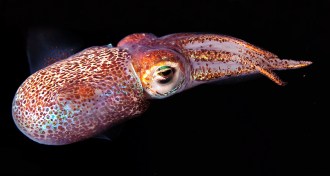 Life
LifeBobtail squid coat their eggs in antifungal goo
Hawaiian bobtail squid keep their eggs fungus-free with the help of bacteria.
-
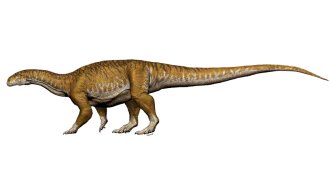 Paleontology
PaleontologyLong-necked dinosaurs grew to be giants in more ways than one
Some early relatives of giant, long-necked sauropods may have used a different strategy to grow to colossal sizes than previously thought.
-
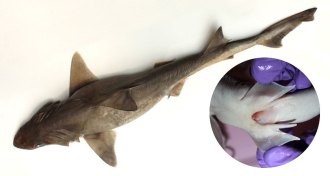 Animals
AnimalsSurprise! This shark looks like a male on the outside, but it’s made babies
External male reproductive organs hid internal female capacity to give birth among hermaphrodite sharks in India.
By Yao-Hua Law -
 Health & Medicine
Health & MedicineAir pollution is triggering diabetes in 3.2 million people each year
A new study quantifies the link between smoggy air and diabetes.
-
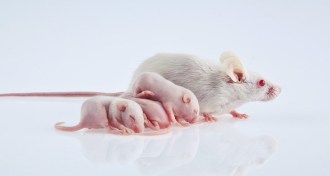 Neuroscience
NeuroscienceVaginal microbes in mice transfer stress to their pups
During birth, microbes from a stressed mouse mother can carry some aspects of stress to her offspring.
-
 Chemistry
ChemistryHow a particle accelerator helped recover tarnished 19th century images
Chemists used a synchrotron to peek beneath 150 years of grime on damaged daguerreotype images, revealing hidden portraits.
-
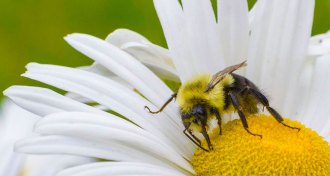 Animals
AnimalsWhy humans, and Big Macs, depend on bees
Thor Hanson, the author of Buzz, explains the vital role bees play in our world.
-
 Materials Science
Materials ScienceDesigner diamonds could one day help build a quantum internet
A new design in artificial diamonds stores and releases quantum information better than others.
-
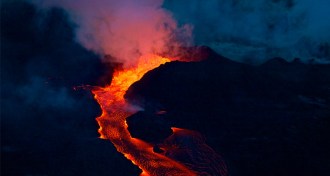 Earth
EarthKilauea’s spectacular pyrotechnics show no signs of stopping
Watch some of the most striking videos and images of the strange, fiery beauty of the Hawaii volcano’s ongoing eruption.
-
 Health & Medicine
Health & MedicineNo matter their size, newborn stomachs need frequent filling
Studies on newborn stomach size help explain why the tiny humans need to eat so frequently.
-
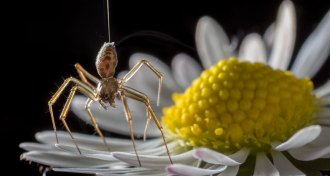 Animals
AnimalsSoaring spiders may get cues from electric charges in the air
Spiders can sense atmospheric electric fields, which might give them cues to take to the air.
-
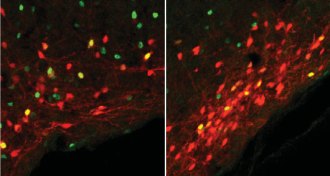 Neuroscience
NeuroscienceNerve cells that help control hunger have been ID’d in mice
A mysterious bump on the human brain may be able to dial appetite up or down.